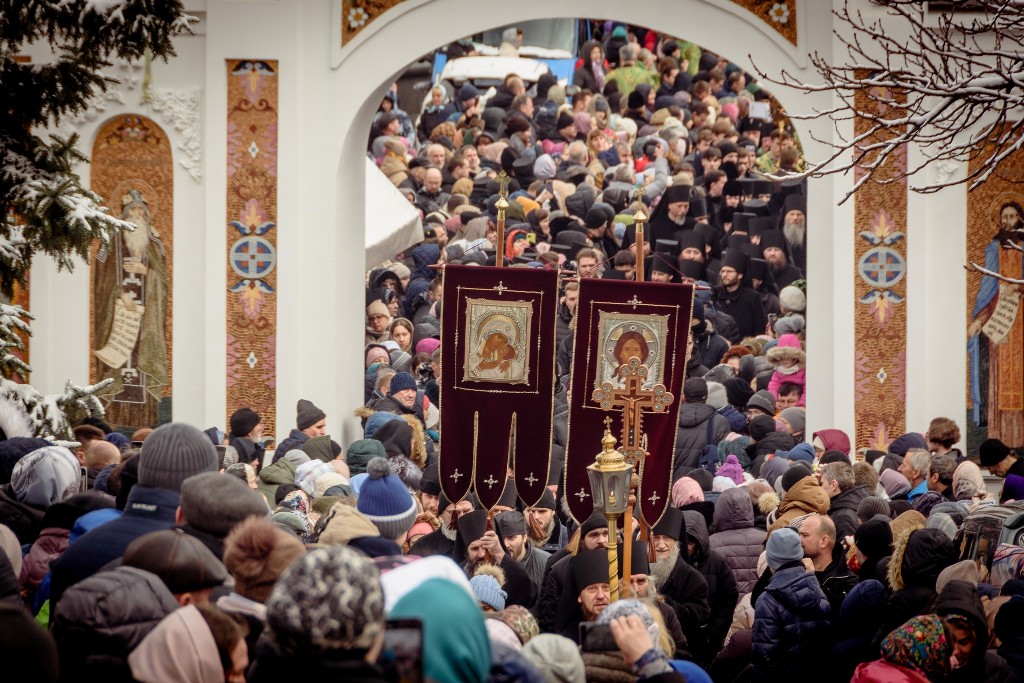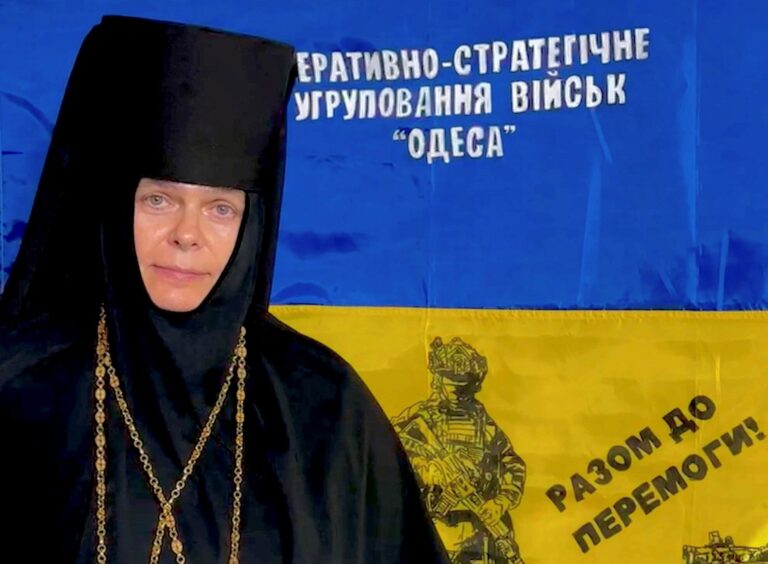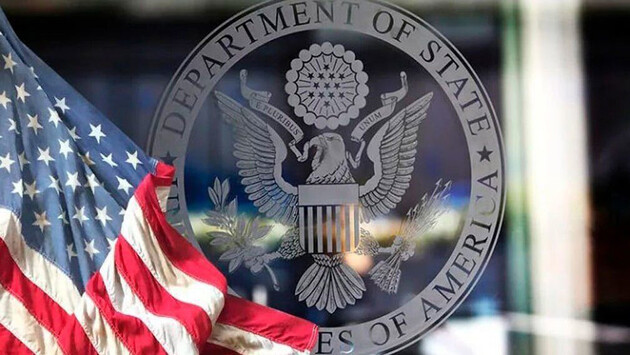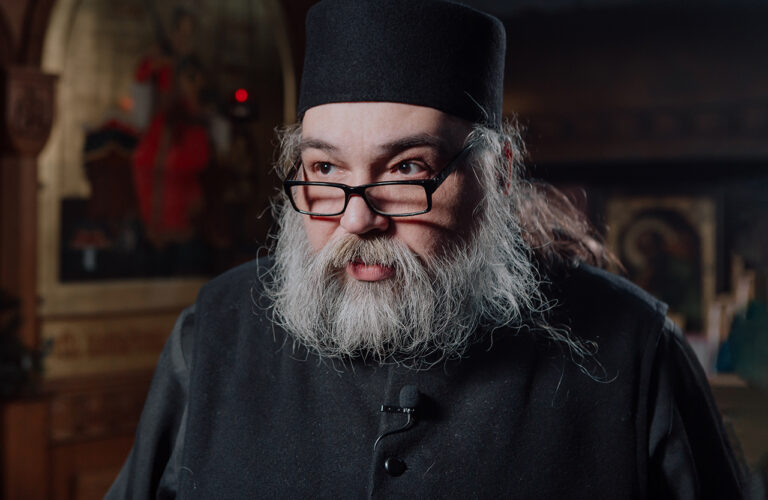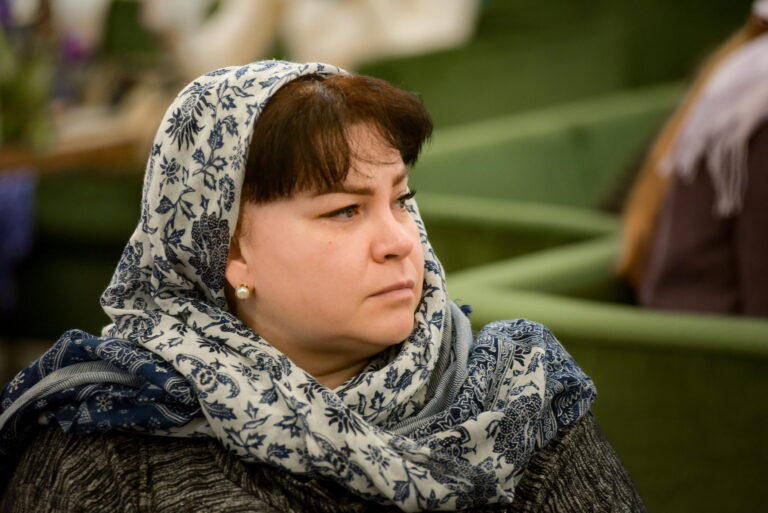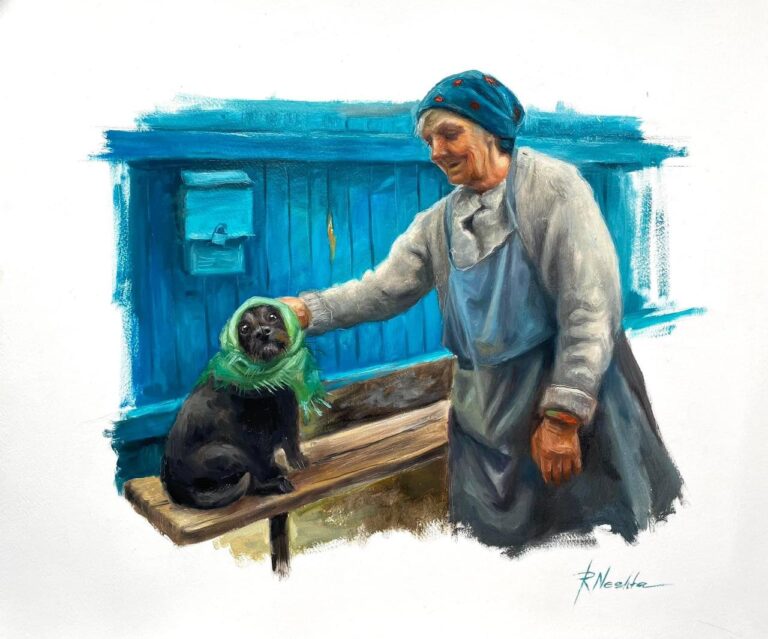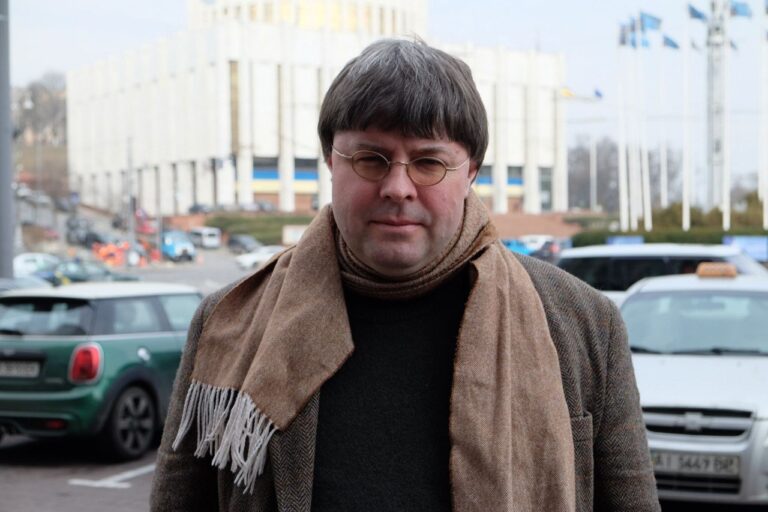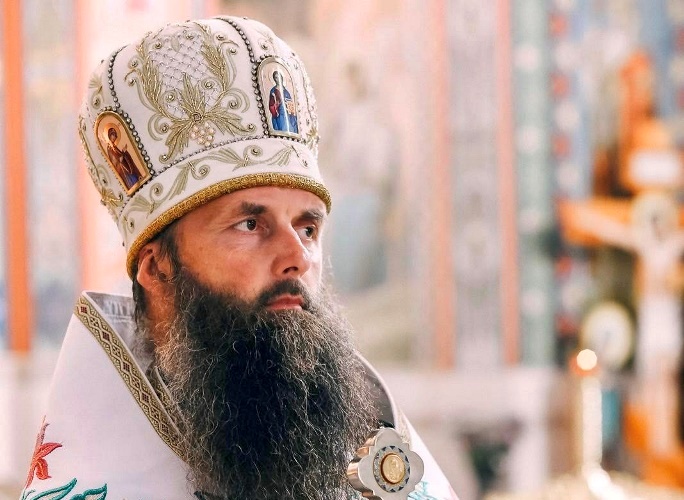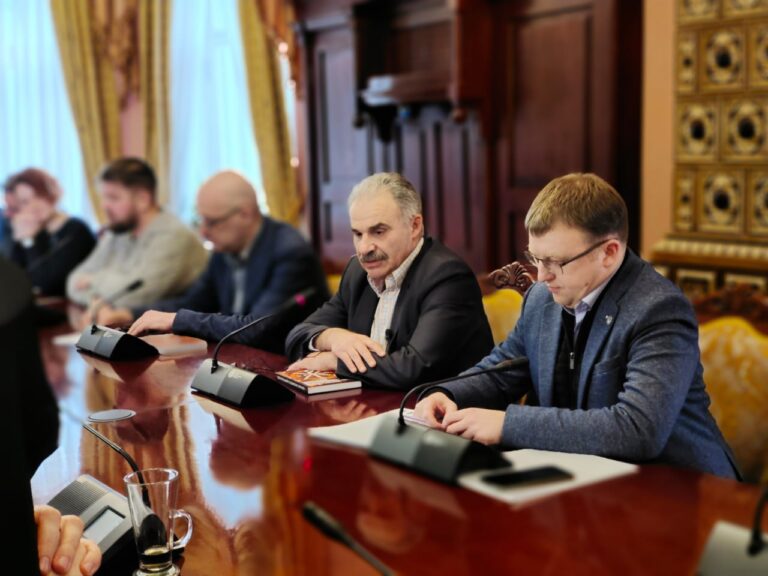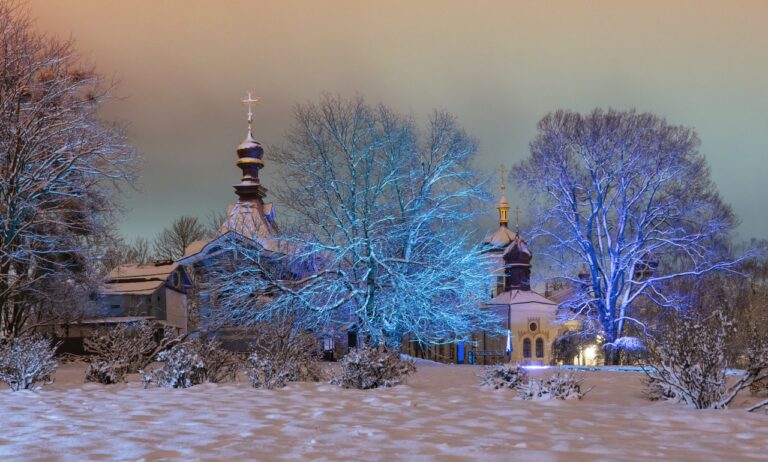Two divergent paths lie before Ukraine, as its leaders and citizens consider how best to order the relation of church, state, and society. I believe that Christian teaching directs Ukraine’s believers to seek the second path rather than the first. I write as a theologian, not a legal expert; as a Protestant, not an Orthodox; and as an American, not a Ukrainian.
Цей текст також є українською мовою: Релігійне майбутнє: два шляхи для України
The first path would lead to the establishment of a national church. In this case, a particular church is accorded a special social status within a nation because that church is understood as best representing the particular religious heritage that the citizens of that nation share. A national church arrangement is typical of many European countries: one immediately thinks of England (the Church of England), Sweden (the Church of Sweden), and Poland (the Polish Catholic Church).
A national church may be, but does not have to be, an established state church that enjoys legal privileges or special government benefits, such as financial support, not available to other religious organizations. In either case (state establishment or disestablishment), the state (sometimes, in its constitution) formally recognizes one particular church as best expressing and preserving an essential element of the nation’s identity. Representatives of this church may be prominent at civic celebrations of historic national events, as well as at special occasions of state, where church and political leaders appear together in an expression of national solidarity. Many (perhaps most) of the nation’s citizens, whether active believers or not, will identify themselves with this church and will look to it to provide for social rites of passage: baptism of children, weddings, and funerals. In various ways, the state and its people honor this church and look to its leaders to speak to them and to unify the nation around issues of common concern.
A national church may, but need not, restrict religious freedom. Other religious groups may be free to operate. But they will typically perceive themselves—and be perceived by the national church and society as a whole—as minority bodies. Their roots may appear to be less ancient than those of the national church, or to lie outside the nation, even if the group has long been present within it. Interestingly, even members of these minority churches may support the idea of a national church—not because they intend to belong to it, but rather because they see it as helping to unite the country around a common historical identity.
Were Ukraine to take this path, the Orthodox Church of Ukraine (OCU) would likely become Ukraine’s national church. It would then claim a social-political significance more central to the life of the nation than that of the country’s other churches and religious bodies. However, movement in this direction would first require attention to a number of complicated matters best resolved under conditions of peace, not war. Would this national church enjoy a degree of state establishment? What kind of legal or other state measures would ensure its special status? How would this church order its relations with other churches and religious communities? How vigorously would this church recognize—and how well would the state protect—the rights of minority religious groups?
The second path would bring Ukraine closer to the American model, where there is no national church. In this case, Ukrainian society would welcome a high degree of religious pluralism and would broadly accept religious competition. The state would refuse to privilege any particular church as representing, better than other religious bodies, the nation’s distinctive heritage. The nation’s laws would make it easy for any group of citizens to organize a new religious community, regardless of whether its roots were indigenous or foreign. So long as a church body remained within the bounds of the law, it would regulate its own life, without government interference. Some churches and religious bodies would identify themselves with state interests, but others would openly criticize state policies—and could do so, without fear of government reprisals.
To be sure, this second path is not typical of historically Orthodox nations. Those countries that suffered communist repression have often seen efforts since the fall of the regimes to return the historic Orthodox Church to the center of the nation’s identity, and to give the Orthodox Church the status of a national church. Such has been the situation in the Russian Federation. Indeed, the American model of religious freedom seems to some Orthodox believers in historically Orthodox nations to be threatening. They worry that it inevitably imposes a secularist liberal democratic order on the nation, thereby undermining the nation’s traditional moral values.
Orthodox leaders in the West have had an additional concern. They have worried about what religious pluralism has done to the Orthodox churches themselves. In the United States, different Orthodox jurisdictions overlap, such that a particular city or area has more than one bishop. This situation contradicts Orthodox theology about the unity of the church. Antiochian Orthodox, Greek Orthodox, Serbian Orthodox, Ukrainian Orthodox, Orthodox Church in America (OCA), and other Orthodox churches seem to compete with each other for adherents and to speak for Orthodoxy as a whole.
I am deeply sympathetic to the call for church unity. Christ’s prayer that his followers be one is a summons not only to Orthodox churches but also to Christianity as a whole. Moreover, the call for church unity is especially important today. My own tradition of American Reformation Protestantism has rested all too easily with church separation and division.
Nevertheless, I believe that an arrangement that focuses not on establishment of a national church but rather on ensuring the fullest possible expression of religious freedom is bestnot only for my country but also for Ukraine. Since its independence, Ukraine has recognized and generally affirmed its historic religious pluralism. Greek Catholics, Latin Catholics, various Orthodox groups, Jews, Muslims, Lutherans, evangelical Protestants, and others have all made essential contributions to the nation’s history and identity. Moreover, prior to and even during the Euromaidan, a Ukrainian Council of Churches and Religious Organizations provided for a high degree of cooperation and mutual understanding among the various religious bodies. Religious pluralism has worked and can work in Ukraine.
Under conditions of war, it is understandable that many Ukrainians want to do whatever they can to unify the nation. But as a Western Christian theologian, I would appeal to all of the Ukrainian churches to resist being used to advance particular political (and sometimes narrowly nationalistic) agenda. Efforts ever since Ukrainian independence to establish a national Orthodox Church have been driven at least as much by Ukrainian politics as by Orthodox theological commitments to one church for one territory. Ukrainians may legitimately hope for the day when the Ukrainian Greek Catholic Church, the Orthodox Church of Ukraine (OCU), and the Ukrainian Orthodox Church (UOC) become one body. But it would be best for these churches to work for unity on the basis of their religious commitments, not because the state or its citizens want a national church that will be reliably loyal to state officials and government policies.
In sum, the political arrangement that best corresponds to the freedom of the Christian gospel is one that provides for separation of church and state, and that welcomes religious pluralism and competition. I believe Ukraine will best honor its past and most fully ensure its future by taking this path, not the first.
John P. Burgess is a professor of systematic theology at Pittsburgh Theological Seminary (USA).



